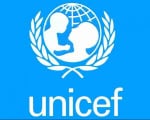ISLAMABAD – Tobacco-related diseases killed nearly 108,000 people in Pakistan every year, affecting 1,200 youth and children daily.
According to WHO report on tobacco consumption in Pakistan, most people die from diseases like heart disease, stroke and emphysema while smoking causes cancer while non-smokers become a victim of cardiovascular disease because of passive smoking.
It said that many people are not fully aware of misunderstanding or underestimate the risks for morbidity and premature mortality due to tobacco use and exposure to tobacco smoke.
It said well-designed health warnings and messages on tobacco product packages have been shown to be a cost-effective means to increase public awareness of the health effects of tobacco use and to be effective in reducing tobacco consumption.
According to a survey of the Global Adult Tobacco Survey (GATS-Pakistan), in Pakistan, 19.1% (23.9 million) of adults (31.8% of men and 5.8% of women) currently (daily or less than daily) used tobacco products.
It added, overall, 12.4% currently smoked tobacco. The prevalence of current tobacco smoking was 22.2% among men and 2.1% among women. Current tobacco smoking was higher in rural (13.9%) than in urban areas (10.0%).
It said overall, daily cigarette smokers smoked an average of 13.6 cigarettes per day, with males smoking 13.7 and females smoking 10.3 cigarettes per day, respectively.
It said nearly 16.8 million adults who worked indoors were exposed to tobacco smoke at the workplace, 56.3 million at home, 21.2 million at restaurants and 49.2 million who used public transport.
The average amount spent on 20 manufactured cigarettes was Rs 40.9 while the same amount of rupees can buy approximately 1 kilogram (2.2. pounds) of potatoes or five eggs or one loaf of bread.
On the other hand, 74.8% of adults favoured increasing taxes on tobacco products. Around 85.8% of adults believed smoking causes serious illness whereas 77% believed smokeless tobacco causes serious illness, it added.
National Coordinator, Coalition for Tobacco Control – Pakistan (CTC), Khurram Hashmi said that effective health warnings and messages and other tobacco product packaging and labelling measures are key components of a comprehensive, integrated approach to tobacco control.
He said that evidence shows that health warnings and messages that contain both pictures and text are far more effective than those that are text-only.
He added they also have the added benefit of potentially reaching people with low levels of literacy and those who cannot read the language in which the text of the health warning or message is written.
Hashmi said that plain packaging would standardize the appearance of cigarette packages by requiring the removal of all brand imagery, including corporate logos and trademarks.
He said packages would display a standard background colour and manufacturers would be permitted to print only the brand name in a mandated size, font and position.
He said that studies have shown that pictorial health warnings raise the awareness of tobacco users to the negative health and economic impacts associated with tobacco use.
He said that Pakistan as a signatory to the Framework Convention on Tobacco Control (FCTC) which was binding on all member states with WHO requires parties to the convention to implement large, rotating health warnings on all tobacco product packaging and labelling.
When contacted, an official of Tobacco Control Cell, Ministry of National Health Services, Regulations and Coordination said that the ministry had announced measures that will require the size of the warnings to increase from the existing size.
He added several other steps were taken related to the implementation and regulation of picture-based health warnings in Pakistan including prohibition of Smoking and Protection of Non-Smokers Health Ordinance (2002), Health Warning Rules (2009) and Amendment to Health Warning Rules (2010).
















